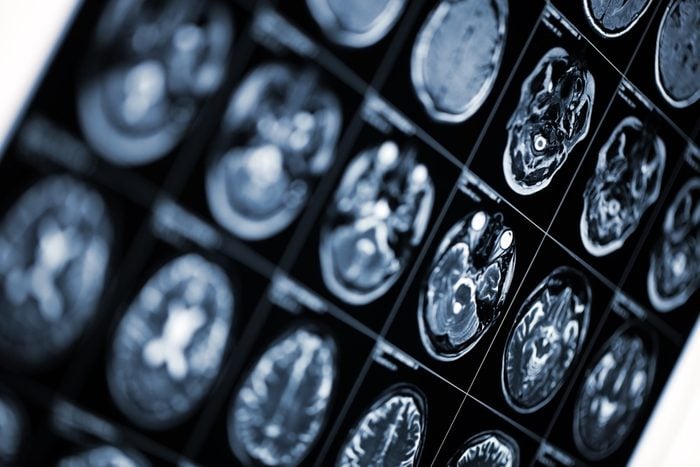
Your brain continues to work
Think your brain is too old to learn new tricks, let alone keep cognitive decline at bay? That’s faulty reasoning. Research featured in the journal Cell: Stem Cell reveals that neurons continue to form in the part of the brain where memories are processed in your 40s, 50s and even your 90s. “Your brain health as a lifelong investment,” says Teresa Liu-Ambrose, PhD, PT, Canada research chair in physical activity, mobility and cognitive neuroscience at the University of British Columbia. “The more regularly you engage in behaviors that are good for the brain, the more resilient your brain may be in the face of aging and disease.”

1. Start moving
Put that pedometer to use. People who started walking 10,000 steps or more daily in midlife had younger brains—about 2.2 years on average—than people who didn’t exercise, according to research in JAMA Network Open. Plus, getting fit at this age helps guard against depression as a senior, notes a study in JAMA Psychiatry.
This all occurs, in part, because exercise reduces inflammation and stimulates the release of chemicals that spur the growth of brain cells and blood vessels in the brain. “It also promotes the sense of well-being, reduces stress, and improves sleep, all of which helps keep the brain healthy,” says Liu-Ambrose.
Here’s How Much Exercise You Need to Keep Your Brain Sharp, a Recent Study Says
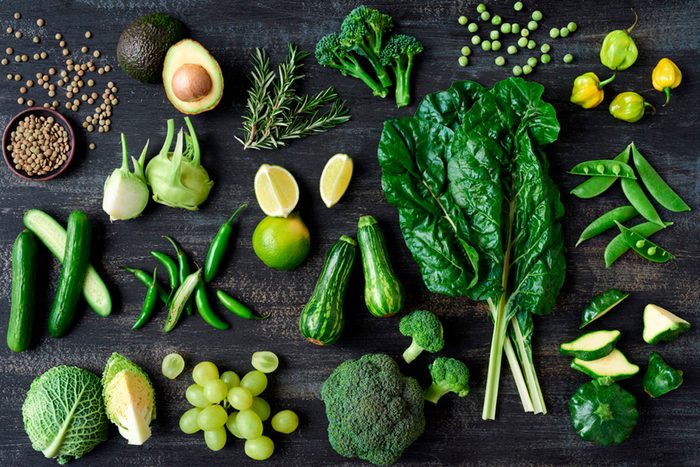
2. Get greens
People who consume approximately one serving of leafy greens a day are cognitively 11 years younger than those who rarely eat them, according to a report in the journal Neurology. Researchers believe lutein, a pigment found in the likes of kale and spinach, could be the reason. An earlier report published in Frontiers in Aging Neuroscience found that lutein helps support gray matter in the part of the brain associated with memory. And since the brain stockpiles lutein over your life span, the more you eat over a longer period of time, the more your brain benefits.

3. Play Sudoku every day
…or do a daily crossword! Both seem to keep minds significantly sharper, according to two 2019 reports in the International Journal of Geriatric Psychiatry. Indeed, people who engage in these types of brain games have the problem-solving skills and short-term memory of individuals who are about eight years younger. And for those who favor word puzzles, their problem-solving abilities match those of people a decade younger.
Over 40? Here Are 9 Clever Memory Exercises to Start Doing Today
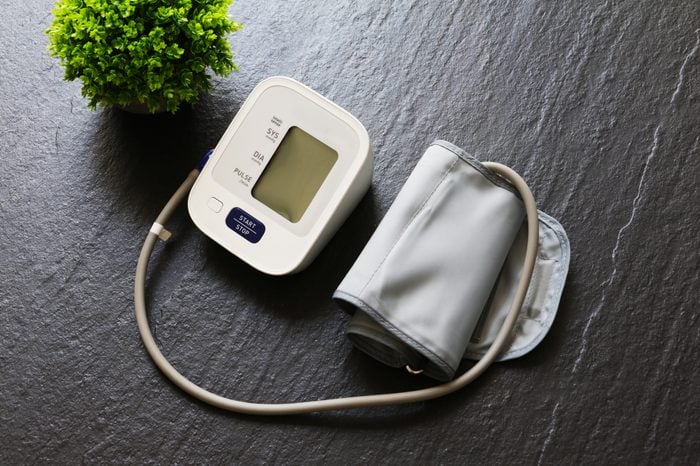
4. Control blood pressure
You may know that elevated blood pressure can raise your risk for heart disease and stroke, but having hypertension in your 40s, 50s and 60s also increases the risk that your mind will suffer later in life, according to the National Institute on Aging.
Here’s How Often You Should Actually Take Your Blood Pressure, Says a Cardiologist

5. Protect your sleep
“If you want your brain to age well, prioritize good sleep now,” says W. Chris Winter, MD, author of The Sleep Solution. Deep, restorative sleep is essential for producing growth hormone, which studies show helps preserve healthy brain processes like memory and alertness. In addition, our brains are programmed to get rid of waste, like the amino acid beta-amyloid, while we sleep. If we don’t sleep well, that waste accumulates. “A build-up of beta-amyloid is the main component of Alzheimer’s plaques,” says Dr. Winter.
This Is the Best Time of Day to Nap for a Better Memory, Says a Neuroscientist

6. Sip smart
Cheers! Moderate wine drinking may quell brain inflammation and help the brain remove toxins, notes a study in the journal Scientific Reports. “That’s not to say people who don’t drink should—or need to—start,” says Julie Andrews, RDN, author of The MIND Diet Plan & Cookbook. While light to moderate alcohol consumption increases the waste-removal function, higher alcohol intake impairs the same function, thus increasing inflammation. “If you already imbibe, dial back your own consumption to one 5-ounce glass of wine a day for brain health,” she says.
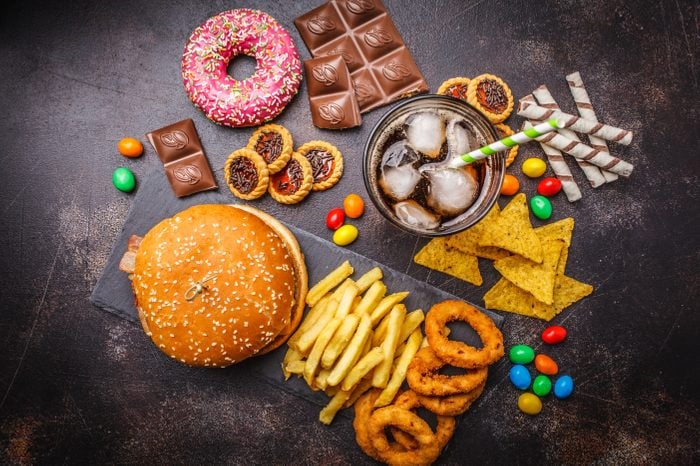
7. Avoid processed foods
Filling your belly with processed foods activates immune-like cells, called glial cells, in the brain. “This can lead to low-grade inflammation, which is a factor in the development of Alzheimer’s disease,” says Emeran A. Mayer, MD, PhD, author of The Mind-Gut Connection. Moreover, a study published in the Journal of Nutrition, Health & Aging found that a diet high in processed foods leads to a decrease in brain tissue, and that may contribute to dementia.
Even if you’ve been a fast and packaged food fan your whole life, “small healthy tweaks now can add up,” says Andrews. “It’s never too late to improve your diet to reduce your risk of developing dementia.”
Eating This Every Day Could Damage Your Brain Health, Says New Study

8. Keep friendships strong
Schedule a brunch date, walks or plan to regularly check in with your friends, says Joel Salinas, MD, an assistant professor of neurology at Harvard Medical School. “Maintaining emotional support promotes activity in specific brain circuits that lead to the production of BDNF, a molecule that’s critical for brain cell repair and the creation of new connections.”
In a 2017 study, Dr. Salinas found that a dwindling social circle can reduce BDNF levels, which can increase the risk of Alzheimer’s disease. “As we age, it’s common for social networks to shrink, making it very important to foster what we already have,” he says.
People Who Did This One Thing at Age 50 Were the Healthiest at Age 80
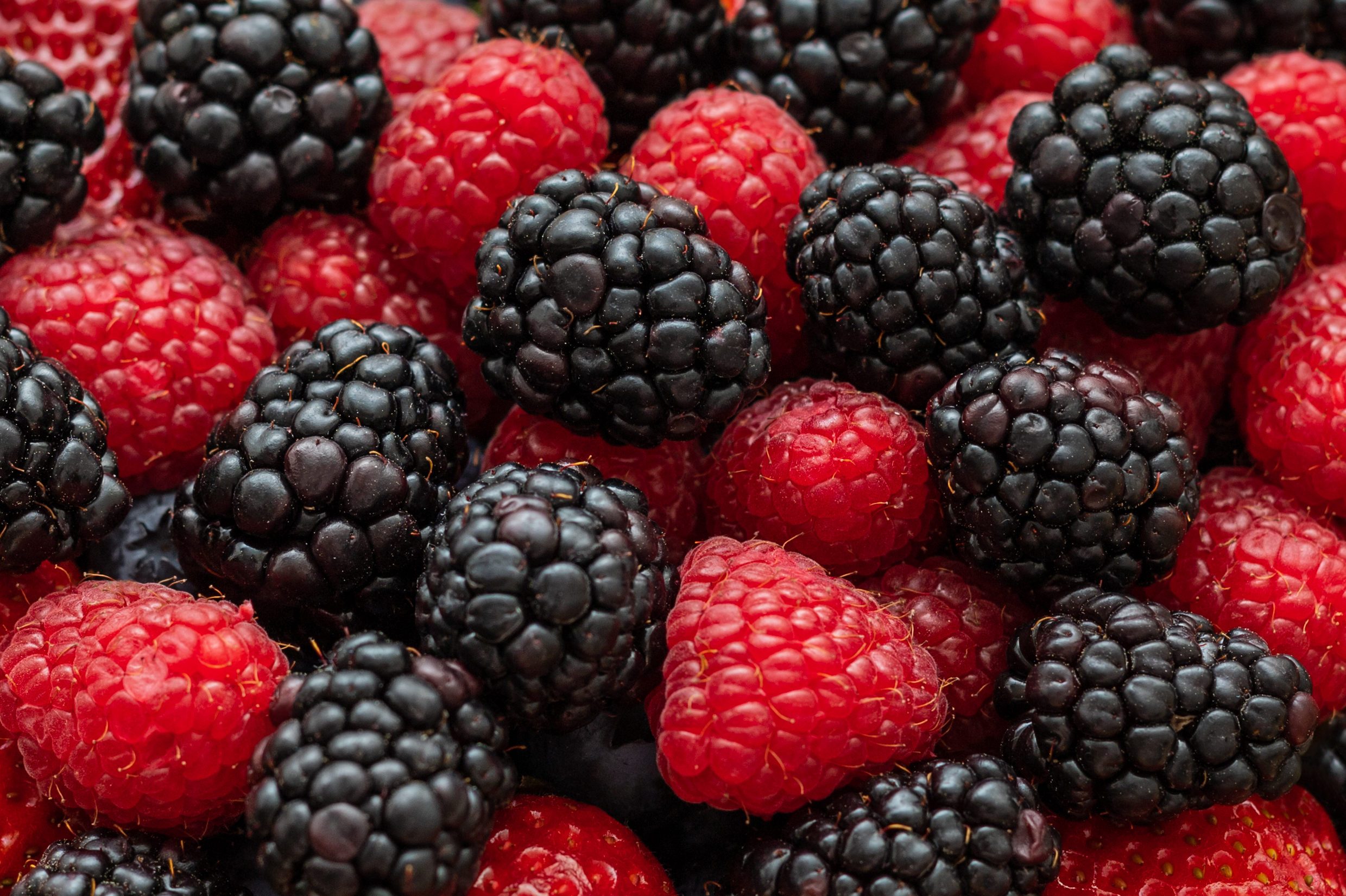
9. Become a berry fan
“Berries are one of the hallmark foods of a brain-healthy diet, in part because they contain antioxidants that fight off oxidative stress,” says Andrews. Oxidative stress greatly contributes to the decline of the brain-protective omega-3, docosahexaenoic acid or DHA. “Even consuming a few servings of berries a week can make a big impact on preserving DHA and brain function in general,” she says. In fact, enjoying just two or more helpings of blueberries or strawberries weekly can delay memory decline by two and a half years, according to research in the journal the Annals of Neurology.
Eating This Berry Can Improve Your Heart & Brain Health in 8 Weeks, New Study Says

10. Learn to meditate
When researchers tested the brains of 50-year-old meditators, they discovered the meditators’ minds were about 7 1/2 years younger on average compared to people who didn’t practice meditation, according to a study published in the journal NeuroImage. Even better: Every year past the age of 50 that people meditated shaved an additional one month and 22 days off the age of their brain. The researchers theorize that the mental energy required to meditate induces neural nerve cell production and the formation of synapses.
10 Positive Affirmations to Say in the Mirror Every Morning for Your Mental Health
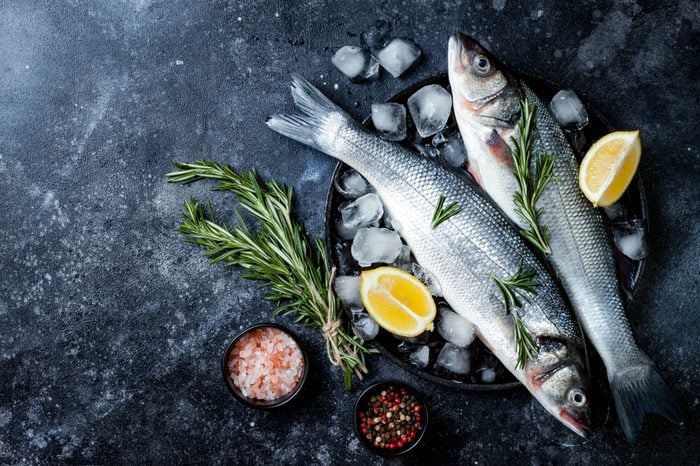
11. Add more fish to the menu
The omega-3 fatty acid called DHA seems to help keep your brain functioning normally and efficiently. “The thing is, your body can’t produce it on its own, so you must consume it,” says Andrews. “And fish like salmon, herring, mackerel, tuna and sardines are brimming with DHA.” That helps explain why research has found that eating just one serving of fish a week can improve thinking skills—something that even holds true for people at high risk of developing Alzheimer’s disease.

12. Ward off type 2 diabetes
People with prediabetes and diabetes tend to have worse long-term memory and more trouble problem-solving compared to those with normal blood sugar, according to a large-scale study published in Diabetologia. However, researchers note that when patients and their doctors take steps to delay and control diabetes, their brains tend to do better.
9 Secret Effects Your Blood Sugar Has on Your Health, Say Doctors
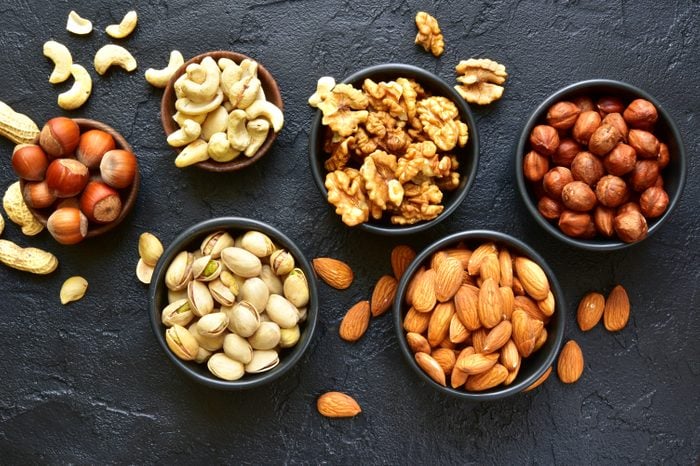
13. Eat walnuts
While all nuts are considered brain food, walnuts are especially beneficial because they’re packed with the healthy omega-3 fat called alpha-linolenic acid (ALA). Some ALA is converted to the omega-3 DHA. “DHA is the most abundant fat in the brain, so consumption is very important for preserving brain function,” says Andrews.
As a matter of fact, regularly eating walnuts is linked to quicker thinking, mental flexibility, and better memory, according to a study in The Journal of Nutrition. Not a walnut fan? Researchers found that people who are 55 and older who eat more than 10 grams (about two teaspoons) of nuts like almonds, hazelnuts or peanuts daily have much sharper minds.
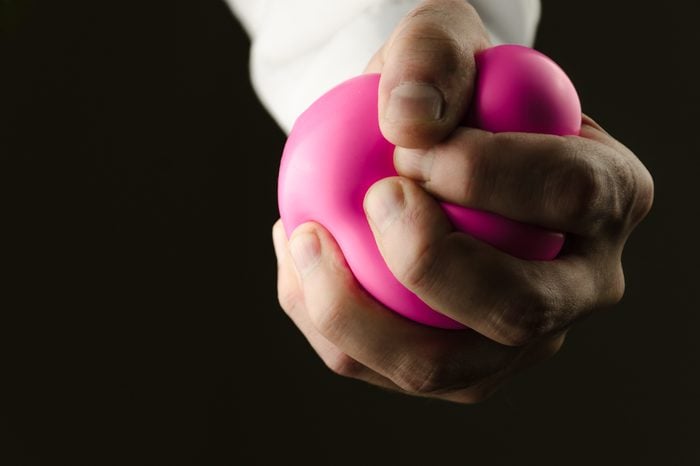
14. Tame stress
Stress itself isn’t the issue—it’s how you react to it. A recent study in the journal Psychosomatic Medicine found that people who react to stressful events with negativity experience worse mental focus and cognitive health than those who take stressful situations more in stride. If you fall on the negative side, start finding ways to alter your stress response now. Researchers found that people who over-react to stress as they get older (in their 70s and beyond) perform the worst on cognitive tests.
I’m a Psychotherapist—Here Are My 5 Keys to Letting Stress Go

15. Learn a new skill
A study published in The Gerontologist found that for people over 60, engaging in creative endeavors like painting classes or learning an instrument greatly improved their recall and processing speed. Researchers speculate that participating in these types of activities shore up the brain’s defenses. But there’s no reason to wait till your 60 to learn something new: According to the American Psychological Association, the amount of white matter—a mix of nerve fibers and their protective covering—in your brain keeps increasing until about age 50. That makes mid-life prime-time for brain-building.

